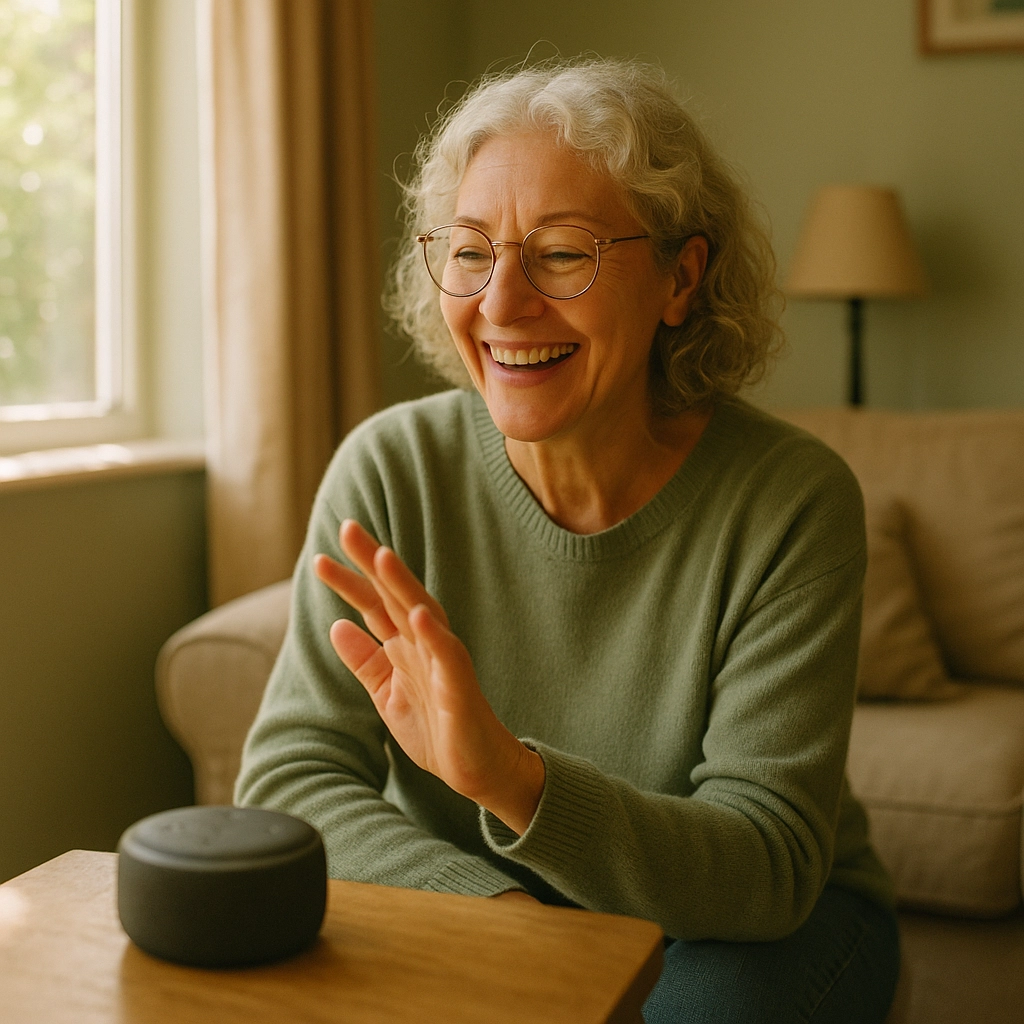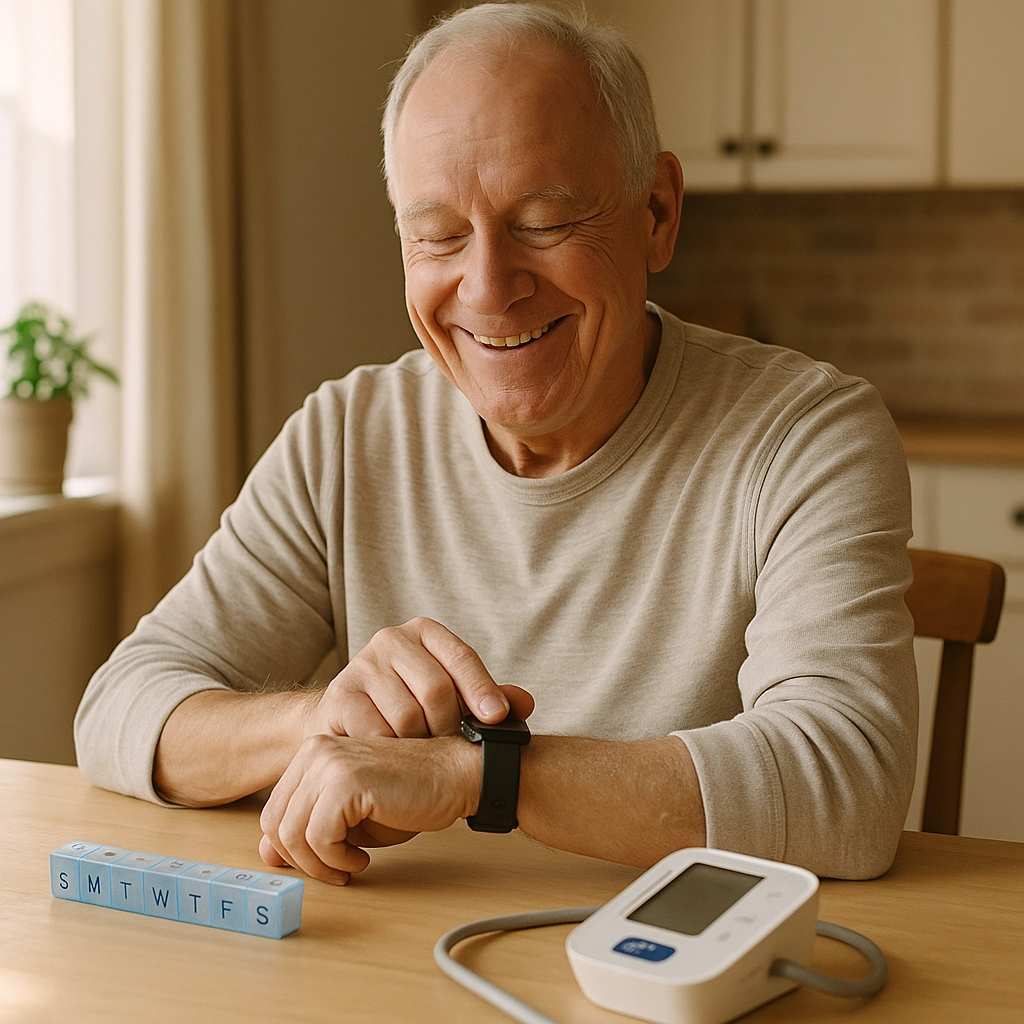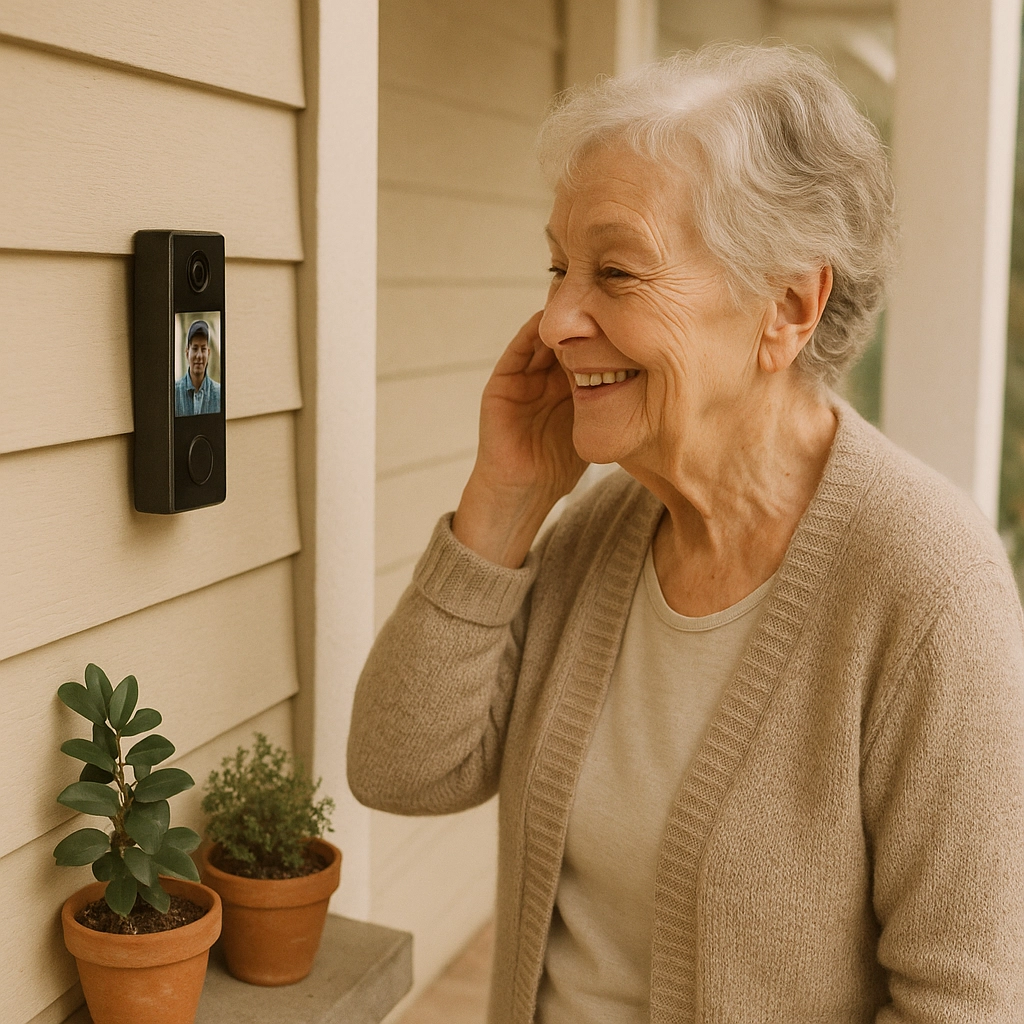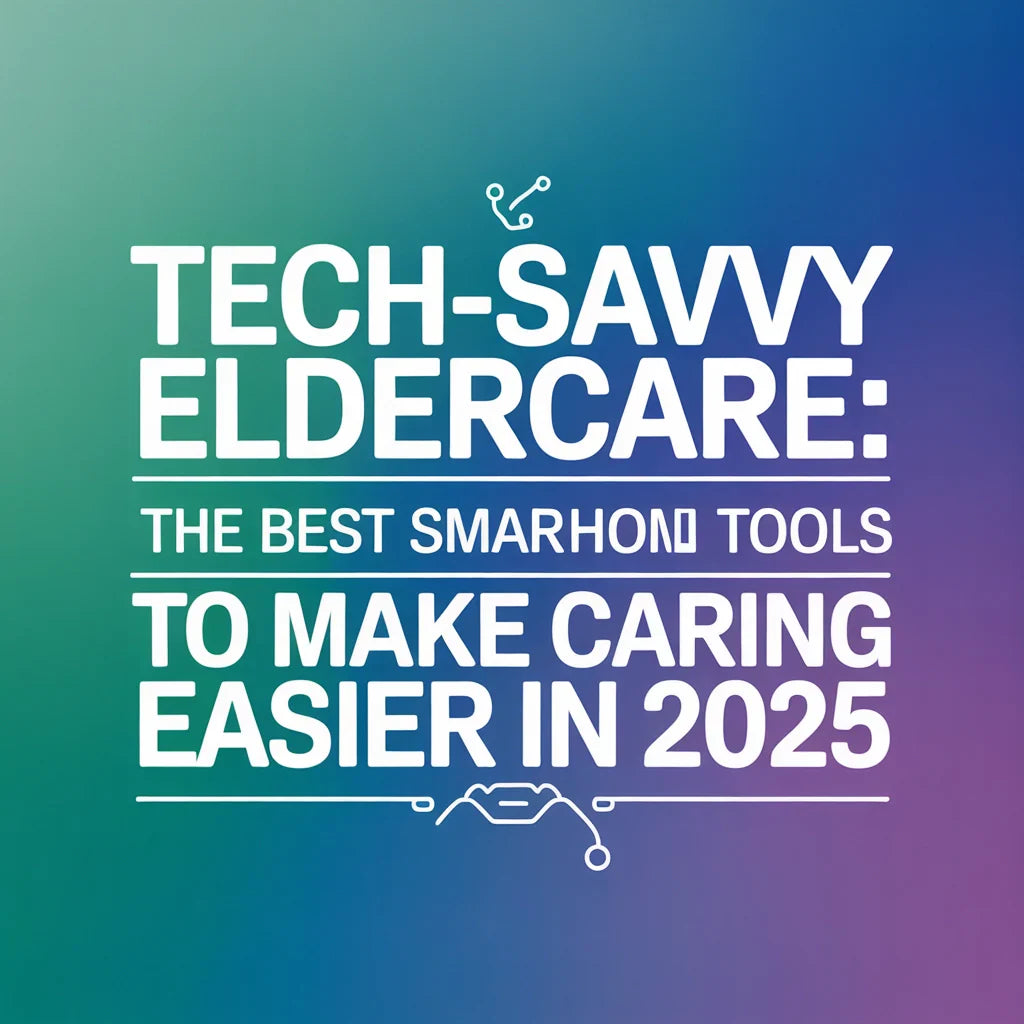Fall interactions and outputs need
Smart homes have come into their own in 2025, and nowhere is their impact felt more than in eldercare. From safety to comfort, organization, and even social connection, tech innovations are taking the pressure off caregivers while allowing seniors to live independently, safely, and happily at home. If you’re a family caregiver or helping your loved ones age in place, here’s a compassionate, practical guide to the best smart home tools for eldercare in 2025.
Voice-Controlled Assistants: The Heart of a Connected Home
Voice assistants like Amazon Echo, Google Nest Audio, and Apple HomePod mini are more capable than ever. For older adults, these friendly, hands-free devices help bridge the gap between tech and daily life. A simple “Hey Google, what’s on my schedule?” or “Alexa, call my daughter” can be a game-changer—especially for someone with limited mobility, low vision, or arthritis.
Highlights for caregivers and elders:
- Medication reminders: Set up daily or weekly reminders through simple voice commands.
- Home automation: Control lights, thermostats, locks, and even the coffeemaker just by speaking.
- Emergency calls: Many assistants can call pre-set contacts or even 911 if needed.
- Routine reassurance: Automate regular wellness checks like, “Did you take your pills?” or prompts to drink water or exercise.
- Entertainment and connection: Stream music, audiobooks, news, and make hands-free video calls with loved ones.

Health Monitoring: Real-Time Wellness From Home
Keeping tabs on chronic conditions without constant trips to the doctor is essential for today’s seniors, and health tech is stepping up.
- Connected health monitors: Blood pressure cuffs, pulse oximeters, and scales automatically sync with caregivers’ smartphones. Modern devices even alert you if readings are out of range.
- Continuous glucose monitors (CGMs): For diabetics, CGMs provide up-to-the-minute data and can alert both the user and caregivers to dangerous highs or lows without finger sticks.
- Wearables: Smartwatches now track heart rate, sleep patterns, oxygen levels, and mobility—some even have built-in fall detection or irregular heartbeat alerts.
This digital safety net allows caregivers to spot issues early, adjust routines, and communicate data directly to healthcare professionals. Many platforms now combine several of these features for comprehensive health overviews.
Home Monitoring and AI-Powered Safety: Peace of Mind, 24/7
Discreet home sensors and cameras can help keep elders safe without invading their privacy. One of the most exciting new tools in 2025 is Zemplee, an AI-driven sensor platform. Zemplee learns your loved one’s normal routines—say, kitchen visits or bathroom usage—and alerts you if there’s a change, like less movement or missed meals.
Key benefits:
- No cameras needed—just motion and environment sensors.
- Immediate alerts for strange inactivity, falls, or wandering.
- Tracks patterns over time to help identify gradual health declines.

Other favorites include smart doorbells (think Ring or Nest), which let seniors safely see and talk to visitors before answering. Paired with smart locks, these tools ensure only welcome guests enter, while caregivers can unlock doors remotely in case of an emergency.
Emergency and Safety Solutions
No tech toolkit is complete without reliable safety and emergency systems:
- Smart medical alert systems: Today’s devices have automatic fall detection, connect directly with emergency services, and often integrate with your home assistant for one-touch help.
- Smoke, carbon monoxide, and water-leak detectors: Smart detectors send instant alerts to both elders and caregivers’ phones, so you’ll know about trouble right away—even from across the country.
- GPS trackers: Lightweight, wearable, and easy to conceal in jewelry or shoes, these trackers help you quickly find a loved one who may wander or get lost.
Medication Management: Never Miss a Dose
Medication mistakes are a top reason for emergency room visits among older adults, but smart medication dispensers are changing the game in 2025.
Features to look for:
- Automated sorting and locked compartments for complex regimens
- Audio and visual reminders (and caregiver notifications if doses are missed)
- Simple, one-button operation for easy use
Some dispensers even sync with caregiver apps to track adherence over time and generate refill reminders.
Enhancing Social Connection and Mental Health
Isolation and loneliness are real risks for anyone aging in place. Thankfully, tech offers new solutions for social connection:
- Video calling displays: Larger, simpler screens (like Echo Show, Google Nest Hub Max) make spontaneous family calls easy—even for folks who aren’t “techy.”
- Social companion robots: New AI-powered robots can converse, play games, and even remind seniors of family birthdays.
- Virtual group sessions: Many local organizations now offer Zoom-based classes, exercise, and social events, keeping older adults engaged and stimulated from home.

Coordination and Communication for Caregivers
Caregiving is a team sport, and the right apps can make all the difference:
- CaringBridge: A private journal and update platform—great for sharing progress and news with the whole care team.
- CareZone: Keeps track of medications, doctor’s notes, insurance, and health records in one secure spot.
- Lotsa Helping Hands: Outlines calendars, assigns tasks, and helps manage meal drops, rides, and support among family and friends.
Managing care digitally reduces stress and miscommunication, making it easier for everyone to support your loved one—even if they’re hours or states away.
How to Choose Smart Home Tools: Key Considerations
Not every gadget is a fit for every family. Before you buy, check for:
- Simplicity: Intuitive setup, big buttons, and easy-to-read screens are best.
- Privacy: Look for strong data protection and easy settings for limiting device access.
- Compatibility: Make sure your devices “talk” to each other (most newer tools work with Alexa, Google, or Apple HomeKit).
- Support: Good customer service can be a lifesaver if a device glitches or an update creates confusion.
- Personalization: Choose features and devices tailored to your loved one’s unique habits, needs, and comfort level with tech.
Compassion Meets Technology: The Essential Home Organization Approach
At Essential Home Organization, LLC, we know a smart home alone isn’t enough. The best care combines innovative tools with real-world support and heart.
Curious about organizing your own home for safer senior living? Want to chat about your caregiving journey? Visit us at Essential Home Organization to learn more or book a consult. Smart homes are making caregiving easier and giving elders more years of independence and dignity.

